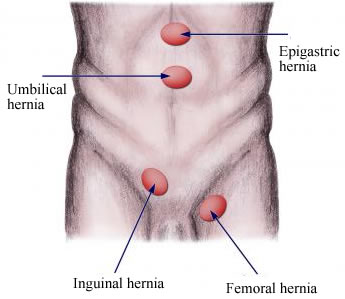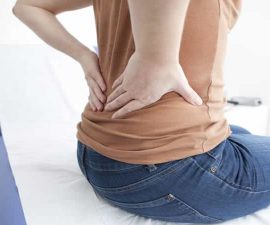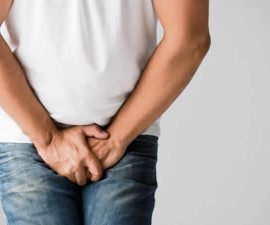When internal part of the body, your intestine for example, pushes /protrudes through a weakness in the abdominal muscles, you can have a condition called ‘hernia’. Though surgical treatment is the main option to cope with, some lifestyle measures can help too. If you have a hernia, there are some important checklists of what NOT to do to help prevent the problem from worsening.
First off, what actually is hernia?
Normally, your muscles are strong enough to keep organs (such as intestines) in their proper place – otherwise you can have hernia. A combination of excessive pressure and weakness of fascia (connective tissue /muscle) is the main reason of why the problem occurs.
Though it is not immediately life threatening in most cases, it will not go away without treatment. Surgery is often used to treat and prevent its serious complications. In fact, it is one of common surgical problems.
Some potential dangerous complications of hernia are as follows:
- It’s possible for hernia to enlarge over time, causing swelling and extra pressure on surrounding tissues. This can be quite painful.
- The protruding tissues may become ‘incarcerated’ or trapped in the weak spot, more difficult to be pushed back. Immediate treatment is necessary, because the blood supply to the part of the trapped intestine will get impaired. If left untreated, this can lead to tissue damage, umbilical pain, nausea, or inability to pass gas /stool.
- Incarcerated hernia can cut off the blood supply to the affected section of intestine. If this is completely cut off, this can cause tissue death which could be so dangerous if not immediately treated.
There are several types of hernia. It can occur in the region of the stomach, groin, belly button, or upper thigh areas. Depending on where it occurs, it is categorized into the following types:
Inguinal hernia
It occurs when fatty tissue, a section of the intestine for example, pokes through a weak site of the abdominal wall fascia around the groin, at the top of the inner thigh. It is relatively more common in men, and more likely to occur with age. It’s the most common type of hernia!
Femoral hernia
As the name suggests, it is a kind of hernia that pokes through the wall of femoral canal. It’s more likely to affect more women than men.






Info for Jeremy
what do you mean jeremy?